I Am Not the World You Want to Change
- Year
- 2012
- Original title
- Atashi wa Sekai Nanka Janaikara
- Japanese title
- あたしは世界なんかじゃないから
- Director
- Cast
- Running time
- 112 minutes
- Published
- 5 December 2012
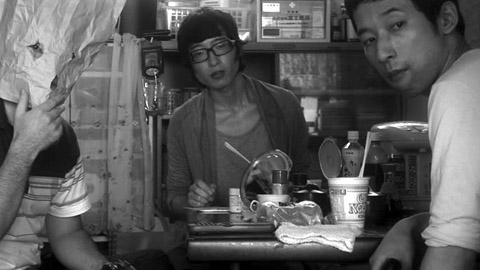
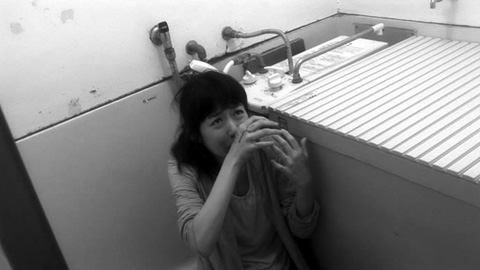
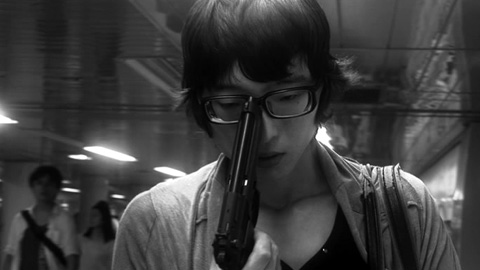
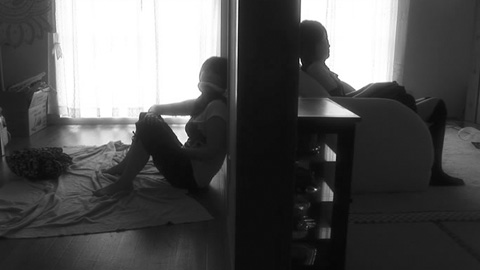
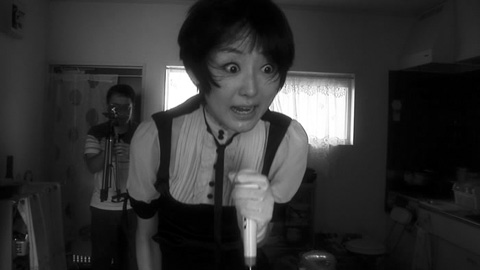
by Tom Mes
The no-budget festival revelation The Soup One Morning (Aru Asa Supu wa, 2004) heralded the arrival of a pair of promising filmmakers in the shape of Izumi Takahashi and Hiromasa Hirosue. This tale of a relationship torn asunder by the husband’s adherence to a religious sect showed an uncompromising attitude to confronting a painful but pressing subject matter, as well as a pure creative inventiveness that helped overcome the production’s almost total lack of means.
Hirosue took over directorial duties on the pair’s two subsequent collaborations, both scripted by Takahashi: The Lost Hum (Hanauta Dorobo, 2006), in which a revenge and kidnapping leads to an extensive internet bullying scheme, and the PFF-funded Fourteen (Juyonsai), which dealt with the reverberations of bullying and abusive behaviour, and the painful route toward regeneration.
Eight years after their debut, Takahashi returns to take the reins on the self-penned I Am Not the World You Want to Change, a story about the reverberations of bullying and abusive behaviour and the painful route toward regeneration, by way of revenge and kidnapping.
A young woman walking down the streets is stunned with a taser gun by the four passengers of a passing van. She awakens gagged on the floor of a tiny apartment, accompanied by the four passengers: three men and one woman who say they have kidnapped her as revenge for her past misdeeds as a bully. A camera records the process, with the intent of uploading the video and "issuing a warning to bullies everywhere".
In flashbacks, we learn the background of each of the participants in this cruel ritual: the cameraman merely hired for the job, who accepted it as a way to break through the monotony of his daily life and his dead-end relationship; the mastermind of the operation, who has no relation to the victim, yet seems to be acting out his own deepest fantasies and frustrations; his henchman, who physically abuses his pregnant girlfriend at home, yet accepted to take part for the money that will allow him to take care of her; and the mysterious girl who sits in the next room and never utters a word. As the brutal punishment begins, the destinies and the ties between these five people gradually unravel.
As the third paragraph of this review suggests, there is little left of the promise of The Soup One Morning, save an increasingly inward tunnel vision. As if locked in a sect-like obsession with critical self-examination and self-improvement, Takahashi and Hirosue retread the same scenarios as their previous films, becoming increasingly violent in their eagerness to confront a painful subject matter that matters to none but themselves and the similarly minded collaborators they managed to attract; at the world premiere presentation at the 2012 Tokyo FILMeX festival, where it was screened in competition, a number of cast members admitted to having gone through experiences not unlike those portrayed in the film.
I Am Not the World You Want to Change is a self-indulgent litany of abusive relationships, one that is furthermore conventional both narratively and stylistically – particularly when compared to Yutaka Tsuchiya’s not dissimilarly themed, but far more challenging and imaginative GFP Bunny (GFP Bunny Tariumu Shojo no Purogramu, also from 2012 and not coincidentally a film that eschews tunnel vision for a broad palette of contemporary issues and associations). Worse, after wallowing in misery for nearly two hours, Takahashi’s film all too neatly wraps up the various characters’ stories in audience-friendly catharsis that some will mistake for powerful storytelling.
It is quite possible that I Am Not the World You Want to Change contains a therapeutic quality for those who have experienced bullying. Every one else can steer clear in the knowledge that cinema is not a mental clinic.